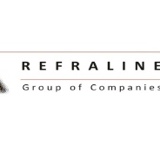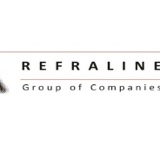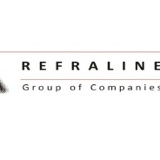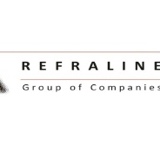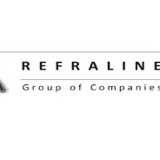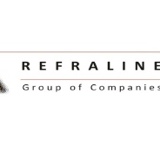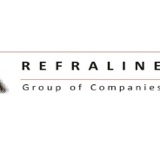Information
-
Audit Title
-
Document No.
-
Client / Site
-
Conducted on
-
Prepared by
-
Location
-
Personnel
Scope of Audit
-
Comments:
-
Current jobs on site?
Opening meeting
-
List attendees and their roles.
-
Signatures:
-
Complete attendance register
-
Objectives of the audit. -Not to reject the system -re-currence may point to system failure - cant cover all aspects. -where no non-conformance detected does not mean non exist sample of activities.
-
Review of audit programme:
-
Function of company representative:
-
Time of closing meeting:
-
Confidentiality
-
Reasons for aborting audit:
-
Invite questions
-
Comments:
-
4.2 POLICY
-
Is there an occupational health and safety policy authorized by the organizations top management, clearly stating the overall OHS objectives and demonstrates a commitment to improving OHS performance?
-
d) documented, implemented, maintained and communicated to all employees?
-
e) available to interested parties?
-
f) reviewed periodically to ensure it remains relevant and appropriate to the organization?
4.3 PLANNING
4.3.1 Planning identification of Hazards, Hazard/Risk Assessment and Control of Hazards/Risks
-
Has the organization established, implemented and maintained documented procedures to identify the OHS hazards and assessed and controlled the associated hazards/risks of activities, products and services over which the organization has control or influence, including activities, products or services of contractors or suppliers?
-
Has the organization developed its methodology for hazard identification, hazard/risk assessment and hazard/risk control, based on its operational experience and its commitment to eliminate workplace illness and injury.
-
Is this methodology kept up-to-date?
4.3.2 Legal and other requirements
-
Has the organization established, implemented and maintained procedures to identify and have access to all legal and other requirements that are directly applicable to the OHS issues related to its activities, products or services, including relevant relationships with contractors and suppliers?
-
Has the organization kept this information up-to-date as well as communicated relevant information on legal and other requirements to its employees?
-
Statutory and not statutory appointments in place and up to date?
4.3.3 Objectives and Targets
-
Has the organization established, implemented and maintained documented OHS obectives and targets at each relevant function and level?
-
When establishing and reviewing its objectives, does the organization consider its legal and other requirements, its OHS hazards and risks, its technological options, its operational and business requirements and the views of interested parties?
-
Are the objectives and targets consistent with the OHS policy, including the commitment to measuring and improving OHS performance?
-
Has an action plan been established to implement objectives and targets
4.4 IMPLEMENTATION
4.4.1 Structure and Responsibility
4.4.1.1 Resources
-
Has the organization's management identified and provided the resources required to implement, maintain, and improve their OHSMS? (Resources such as human resources, and specialized skills, technology and financial resources?)
4.4.1.2 Responsibility and Accountability
-
Has the organization defined, documented and communicated the areas of accountability and responsibility (including those imposed by OHS legislation) of all personnel involved in the OHSMS's operation?
-
Where contractors are involved, are these areas of accountability and responsibility clarified with respect to those contractors?
4.4.2 Training and Competency
-
Has the organization, in consultation with employees, identified training needs in relation to performing work activities competently, including OHS training?
-
Are procedures in place to ensure that OHS competencies are developed and maintained?
-
Are personnel assessed as competent on the basis of skills achieved through education, training or experience, to perform assigned tasks taking into account the OHS obligations, hazards and risks associated with the work activities?
-
Are procedures developed for providing OHS training? Do these procedures take into account:
-
a) the characteristics and composition of the workforce which impact on occupational health and safety management, and
-
b) responsibilities, hazards and risks?
-
Has the organization ensured that all personnel (including contractors and visitors) have undertaken training appropriate to the needs identified?
-
Is this training carried out by persons with appropriate knowledge, skills and experience in OHS and training?
4.4.3 Consultation, Communication and Reporting
4.4.3.1 Consultation
-
Have the employees:
-
a) been involved in the development, implementation and review of policies and procedures to identify hazards and assess and control hazards/risks?
-
b) been consulted where there are any changes that affect workplace OHS,
-
c) selected those who will represent them on OHS matters, and
-
d) been informed as to who is/are their employee OHS representative(s) and specified management representatives?
-
Are those representing the employees and employer receiving appropriate training to undertake effectively, their involvement in the development, implementation and review of OHS arrangements?
-
Have sufficient meetings (safety committee) as per legislative requirements?
4.4.3.2 Communication
-
Does the organisation have procedures for ensuring that pertinent OHS information is communicated to and from employees and other interested parties?
4.4.3.3 Reporting
-
Are appropriate procedures for relevant and timely reporting of information established to ensure the OHSMS is monitored and performance improved?
-
Are reporting procedures established to cover the following:
-
a) OHS performance reporting (including results of OHS audits and reviews)
-
b) Reporting of incidents and system failures
-
c) Reporting on hazard identifications
-
d) Reporting on hazard/risk assessment
-
e) Reporting on preventative and corrective actions
-
f) Statutory reporting requirements
4.4.4 Documentation
-
Has the organisation established, implemented and maintained information, in a suitable medium such as print or electronic form to:
-
a) describe the core elements of the management system and their interaction; and
-
b) provide direction to related documentation?
4.4.5 Document and Data Control
-
Has the organisation established, implemented and maintained procedures for controlling all relevant documents and data required by this Standard to ensure that:
-
a) they can be readily located;
-
b) they are periodically reviewed, revised as necessary and approved for adequacy by competent and responsible personnel;
-
c) current versions of relevant documents and data are available at all locations where operations essential to the effective functioning of the OHSMS are performed;
-
d) obsolete documents and data are promptly removed from all points of issue and points of use or otherwise assured against unintended use; and
-
e) archival documents and data retained for legal or knowledge preservation purposes or both, are suitably identified.
-
Is this documentation and data legible, dated (with dates of revision) and readily identifiable and maintained in an orderly manner for a specified period? Are procedures and responsibilities established and maintained concerning the creation and modification of the various types of documents and data?
-
Has the organisation precluded the use of obsolete documents?
4.4.6 Hazard Identification, Hazard/Risk Assessment and Control of Hazards/Risks
4.4.6.1 General
-
Has the organisation established, implemented and maintained documented procedures to ensure that:
-
a) hazards are identified;
-
b) hazards/risks are assessed;
-
c) hazards/risks are controlled; and then
-
d) steps (a) to (c) are evaluated.
4.4.6.2 Hazard Identification
-
Does the identification of hazards in the workplace take into account:
-
a) the situation or events or combination of circumstances that has the potential to give rise to injury or illness;
-
b) the nature of potential injury or illness relevant to the activity, product or service; and
-
c) past injuries, incidents and illnesses?
-
Does the identification process also include consideration of:
-
a) the way work is organised, managed, carried out and any changes that occur in this;
-
b) the design of workplaces, work processes, materials, plant and equipment;
-
c) the fabrication, installation and commissioning and handling and disposal (of materials, workplaces and plant and equipment);
-
d) the purchasing of goods and services;
-
e) the contracting and subcontracting of plant, equipment, services and labour, including contract specification and responsibilities to and by contractors; and
-
f) the inspection, maintenance, testing, repair and replacement (of plant and equipment).
-
g) Have a full range of hazards been identified such as but not limited to:<br>- Health <br>- Biological <br>- Physical <br>- Ergonomics <br>- Chemical <br>- Fire <br>- Psychological (shift work, high risk) <br>- Environmental <br>- Emergency situations <br>- Weather <br>- Abnormal situations
4.4.6.3 Hazard/Risk Assessment
-
Are all hazards/risks associated with each identified hazard assessed and have hazard/risk control priorities been assigned, based on the established level of hazard/risk?
4.4.6.4 Hazard/Risk Control
-
Are all hazards/risk, identified through the assessment process as requiring control, controlled through a preferred order of control methods (hierarchy of controls), based on reasonable practicality? Is ELIMINATION the first method of control considered?
4.4.6.5 Evaluation
-
Are hazard identification, hazard/risk assessment and control processes subject to a documented evaluation of effectiveness and modified as necessary?
4.4.6 Operational Control
-
List all Operational controls that we audited:
-
Forklift
-
Comments:
-
Lifting equipment
-
Comments:
-
Portable Electrical Equipment
-
Comments:
-
Welding and gas cutting equipment
-
Comments:
-
Mixing machines
-
Comments:
-
Chemicals
-
Comments:
-
Electrical / Pneumatic
-
Comments:
-
Other (Please Specify)
-
Comments:
-
Registers up to date?
-
Operators trained for use?
-
SOP's available for use
-
Identified in HIRA ?
-
Machine is safe and meets legal requirements?
4.5 MEASUREMENT AND EVALUATION
4.5.1 Monitoring and Measurement
4.5.1.1 General
-
Has the organisation established, implemented and maintained documented procedures to monitor and measure on a regular basis, the key characteristics of its operations and activities that can cause illness or injury. Is the effectiveness of these measures evaluated?
-
Has appropriate equipment for monitoring and measurement related to health and safety risks been identified, calibrated, maintained and stored as necessary? Are records of this process retained according to the organisation's procedures?
-
With regard to the OHSMS, has the organisation established, implemented and maintained procedures to monitor:
-
a) performance, effectiveness of relevant operational controls and conformance with the organisation's objectives and targets; and
-
b) compliance with relevant OHS legislation?
4.5.1.2 Health Surveillance
-
Has the organisation identified those situations where employee health surveillance is required and implemented appropriate systems? Do employees have access to their own individual results?
-
Where specified by legislation, is the health of employees exposed to specific hazards monitored and recorded?
4.5.2 Incident Investigation, Corrective and Preventative Action
-
Has the organisation established, implemented and maintained procedures for:
-
a) investigating, responding to , and taking action to minimise any harm caused from incidents;
-
b) investigating and responding to system failures; and
-
c) initiating and completing appropriate corrective and preventative action.
-
Has the organisation implemented and recorded any changes in the OHSMS procedures resulting from incident investigations and corrective and preventive action?
4.5.3 Records and Record Management
-
Has the organisation established, implemented and maintained procedures for the identification, maintenance and disposition of OHS records, as well as the results of audits and reviews?
-
Are OHS records legible, identifiable and traceable to the activity, product or service involved? Are OHS records stored and maintained in such a way that they are readily retrievable and protected against damage, deterioration and loss? Are their retention times established and recorded?
-
Are records maintained, as appropriate to the system and to the organisation, to demonstrate conformance to the requirements of this Standard?
4.5.2 OHSMS Inspections
-
Has the organisation established, implemented and maintained an inspection program and procedures for periodic OHSMS inspections to be carried out by a competent persons, in order to:
-
a) determine whether the OHSMS:
-
i) conforms to planned arrangements for OHS management including the requirements of this Standard;
-
ii) has been properly implemented and maintained; and
-
iii) is effective in meeting the organisation's policy as well as objectives and targets for continual OHS improvement; and
-
b) provide information on the results of audits to management and employees.
-
Job observations been conducted by supervision?
-
Job observation schedule in place?
-
Issues identified in job observations identified and rectified?
Work on site:
-
Is the current work on site covered by a risk assessment?
-
Has the risk assessments been explained to the employees and registers signed?
-
Has the required permits been issued to work?
-
Has work been scoped by the client and covered by all the required documentation? Z
-
Has all machinery used on site been inspected by the relevant inspection registers before use?
-
Has all relevant operators been trained to use equipment?
-
Is the equipment used during work safe and meet minimum legal requirements?
-
Has the correct PPE been issued to employees
-
All employees using the PPE as specified?
-
SOP's available for current work, and have employees been trained on SOP's?
-
Where required is SDS's available for chemicals used on site
-
Employees training to work at heights?
-
Fall protection equipment legal, maintenance, inspected and correctly used
-
Fall protection plan available on site, implemented, and checked?
-
All relevant symbolic safety signs obeyed and considered?
-
Where required have barriers been fitted for work that involves excavations and do they meet requirements?
-
Site area housekeeping maintained, controlled and in order?
Closing meeting
-
Attendance register
-
Audit only sample, where no non conformance reported, does not mean on exist.
-
Summarise good practices if any.
-
Comments:
-
Copy of feedback report.
-
Invite questions
Summary of audit report:
-
Summary of total score:
-
List non-conformances:
-
List findings:
-
List opportunities for improvement:
Signatures:
-
Auditor signature:
-
Site Manager:
-
Lead Auditor:
-
Date and time:






